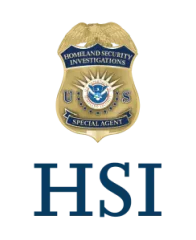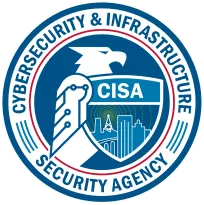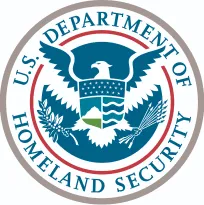
Know2Protect is a national public awareness campaign developed by the Department of Homeland Security to educate and empower children, teens, parents, trusted adults and policymakers to prevent and combat online child sexual exploitation and abuse (CSEA); explain how to report online enticement and victimization; and offer response and support resources for victims and survivors of online child sexual exploitation and their supporters.
Know2Protect’s Objectives
- Education: Raise awareness of online CSEA and encourage communities to educate themselves and others about this crime.
- Prevention: Provide resources and tools to help prevent children and teens from becoming victims of online CSEA.
- Intervention: Empower communities to act, report abuse, and support victims and survivors of online CSEA.
What is Online CSEA?
Online CSEA is a horrific crime that targets some of the most vulnerable people in our communities — children and teens.
It includes a broad range of criminal acts that involve victimizing minors for sexual gratification or some other personal or financial gain. Online CSEA takes many forms, including the creation and distribution of child sexual abuse material, grooming, sextortion and self-harm. To learn more about online CSEA, visit Know the Threats.

Why DHS?
Since its inception, DHS has used its unique law enforcement authorities and mission to investigate and prevent crimes like child sexual exploitation and abuse. In 2023, in recognition of the growing importance of this work, the department added its first new mission since 2003: combating crimes of exploitation and protecting victims. This step reflects the department’s emphasis on stopping perpetrators and supporting victims and survivors. Together with our partners in law enforcement, state and local government, international counterparts, and nongovernmental organizations, the DHS workforce does heroic work to prevent these crimes, support those who are impacted by them, and hold perpetrators accountable.

Homeland Security Investigations is the principal investigative arm of DHS, focusing on protecting the public from crimes of victimization, including child sexual exploitation. Every day, HSI works to investigate, apprehend, and prosecute offenders and identify, protect and support victims. HSI uses state-of-the-art technology to collect evidence and track the activities of individuals and organized groups that sexually exploit children using the dark web, chat rooms, peer-to-peer trading and other internet-based platforms. HSI also prevents transnational child sexual abuse, including those who travel internationally to engage in illicit sexual conduct with minors.
Wanting to spare victims from the pain and harm wrought by exploitation, HSI applied its extensive investigative expertise to create a prevention program, Project iGuardian®. Since 2014, Project iGuardian has been HSI’s primary outreach tool to educate the public about the ongoing threat of online child sexual exploitation and abuse. In the past five years alone, it has reached more than 500,000 participants nationally and internationally. At the beginning of fiscal year 2024, HSI launched a revamped Project iGuardian that includes new characters and promotional materials, HSI subject matter expert-driven content and audience-specific presentations to counter online CSEA and report on the emerging threats.

One of the U.S. Secret Service’s core missions is protection, and the USSS is committed to the protection of minors from CSEA. USSS accomplishes this through advanced investigative and forensic support to state and local law enforcement agencies, such as providing support for polygraphs of suspected perpetrators, advanced analysis of photo or video evidence and assistance on cases related to missing and exploited children. Since 1997, the U.S. Secret Service has helped bring child safety awareness to the public through:
The Childhood Smart Program, a program created in partnership with the National Center for Missing & Exploited Children, helps educate parents and children about internet and personal safety. U.S. Secret Service employees educate parents and children (ages 5 to 17) about real-world and internet safety, including topics related to the prevention of child sex abuse and sex trafficking.
Operation Safe Kids provides parents an information card about their child, including biographical data, a current photo and inkless digitized fingerprints. If the child is ever reported missing, lost or abducted, critical information can be retrieved quickly from their parents to support a law enforcement investigation.

On behalf of the U.S. Departments of Education, Health and Human Services, Homeland Security and Justice, the Cybersecurity and Infrastructure Security Agency administers SchoolSafety.gov, a collaborative website that provides schools and districts with actionable recommendations to create safe and supportive environments for students and educators. The site includes information, resources, guidance and evidence-based practices on a range of school safety topics, including child exploitation. CISA also leads educational webinars for school administrators, teachers, parents, students and law enforcement representatives that cover a range of school safety topics and provide information on the resources, tools and best practices available to create safer and more resilient school systems.

The DHS Science and Technology Directorate supports DHS offices by providing technical and scientific expertise along with researching, developing and deploying leading-edge forensic tools and technologies within DHS agencies and offices. This work aims to enable DHS and our law enforcement partners across the country to more effectively prevent and interdict child victims of online sexual exploitation.

DHS works alongside our international government partners to combat this borderless crime in numerous bilateral and multilateral forums.
Along with international partners and in consultation with technology companies, DHS helped author the Voluntary Principles to Counter Online Child Sexual Exploitation and Abuse, which affirms that we all have a duty to do more to combat online CSEA; that governments must support these efforts through education, research, legislation and law enforcement; and that industry must play a central role in combatting these crimes.
DHS leads the Australia/United States Joint Council on Combatting Online Child Sexual Exploitation, launched in May 2023, to combat online CSEA through a joint multidisciplinary work plan to be completed over the next two years.
